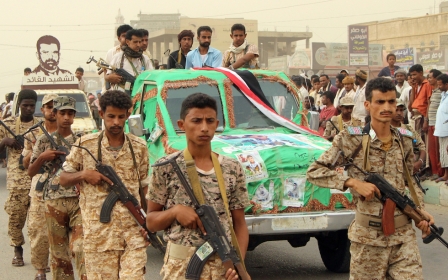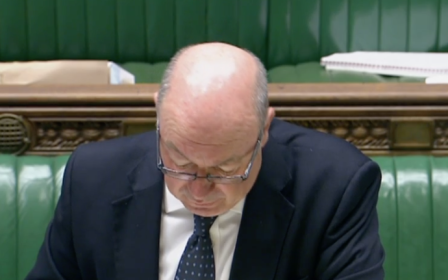US certifies that Saudi, UAE are trying to minimise Yemen civilian casualties

US Secretary of State Mike Pompeo said on Wednesday that he certified to Congress that Saudi Arabia and the United Arab Emirates were working to reduce civilian casualties in Yemen, avoiding a limitation on US help for its allies in the conflict.
Without the certification, US tanker aircraft would have been restricted in the refuelling of Saudi-led coalition jets conducting strikes against Yemen's Houthi rebels.
Pompeo's decision drew the derision of critics of the Saudi-led air campaign, which has long been denounced even by Western allies for the number of civilian casualties it has caused and for driving Yemen to the brink of famine.
In an unclassified report, obtained by AFP, that accompanied Pompeo's certification, he acknowledged that "civilian casualties have occurred at rates that are far too high in the Saudi-led coalition's campaign in Yemen".
The Yemen conflict has triggered the world's worst humanitarian crisis, with the UN estimating that as many as 10,000 people have died, most of them civilians, since the coalition launched military operations in 2015.
Many more have died of war-related causes, including an outbreak of cholera that has killed at least 2,000 and infected more than 600,000 people, according to the World Health Organisation.
A number of factors underpinned Pompeo's decision, including the Saudi-led coalition's admission of blame and agreement to compensate the victims of a 9 August air strike on a bus that killed dozens of people, including 40 children, a State Department official said.
The coalition also has pledged to hold accountable those responsible for the air strike, while Saudi Arabia and the UAE have continued supporting UN efforts to find a political settlement to the conflict, said the official, who requested anonymity.
But some lawmakers on both sides of the aisle pushed back.
"Pompeo’s ‘certification’ is a farce. The Saudis deliberately bombed a bus full of children. There is only one moral answer, and that is to end our support for their intervention in Yemen," Democratic US Representative Ro Khanna said in a post on Twitter.
Pompeo’s ‘certification’ is a farce. The Saudis deliberately bombed a bus full of children
- Ro Khanna, Democratic US Representative
Republican Representative Justin Amash said the United States should stop selling weapons and providing military assistance to Saudi Arabia.
"This war in Yemen is unconscionable, and the United States should not be a party to it," Amash said on Twitter.
US lawmakers, concerned about a growing humanitarian disaster in Yemen, required Pompeo to certify by Wednesday that the Saudis and the UAE were taking meaningful measures to reduce civilian casualties and allow humanitarian aid deliveries.
Without the move by Pompeo, the US would have been barred from refuelling Saudi-led aircraft in mid-air except when the coalition is striking Yemeni factions of al-Qaeda and the Islamic State (IS) group, the Houthis' ballistic missiles, or protecting US military units and international commercial shipping.
Larry Lewis, a former State Department adviser to Saudi Arabia on reducing civilian casualties, called Pompeo’s statement "objectively false".
"There’s more that can be done," Lewis, now the director of the Center for Autonomy and Artificial Intelligence at the CNA, a Washington think-tank, wrote in an email. "Whether the US government is willing to do more is another matter."
US Defence Secretary Jim Mattis said he backed Pompeo's finding.
Saudi Arabia is leading a Western-backed alliance of Arab states to try to restore the government of Yemeni President Abd-Rabbuh Mansour Hadi, ousted from the capital Sanaa by the Houthis in 2015.
An attempt to convene UN-mediated peace talks in Geneva collapsed last weekend after the Houthi delegation failed to show up for three days.
Middle East Eye propose une couverture et une analyse indépendantes et incomparables du Moyen-Orient, de l’Afrique du Nord et d’autres régions du monde. Pour en savoir plus sur la reprise de ce contenu et les frais qui s’appliquent, veuillez remplir ce formulaire [en anglais]. Pour en savoir plus sur MEE, cliquez ici [en anglais].




